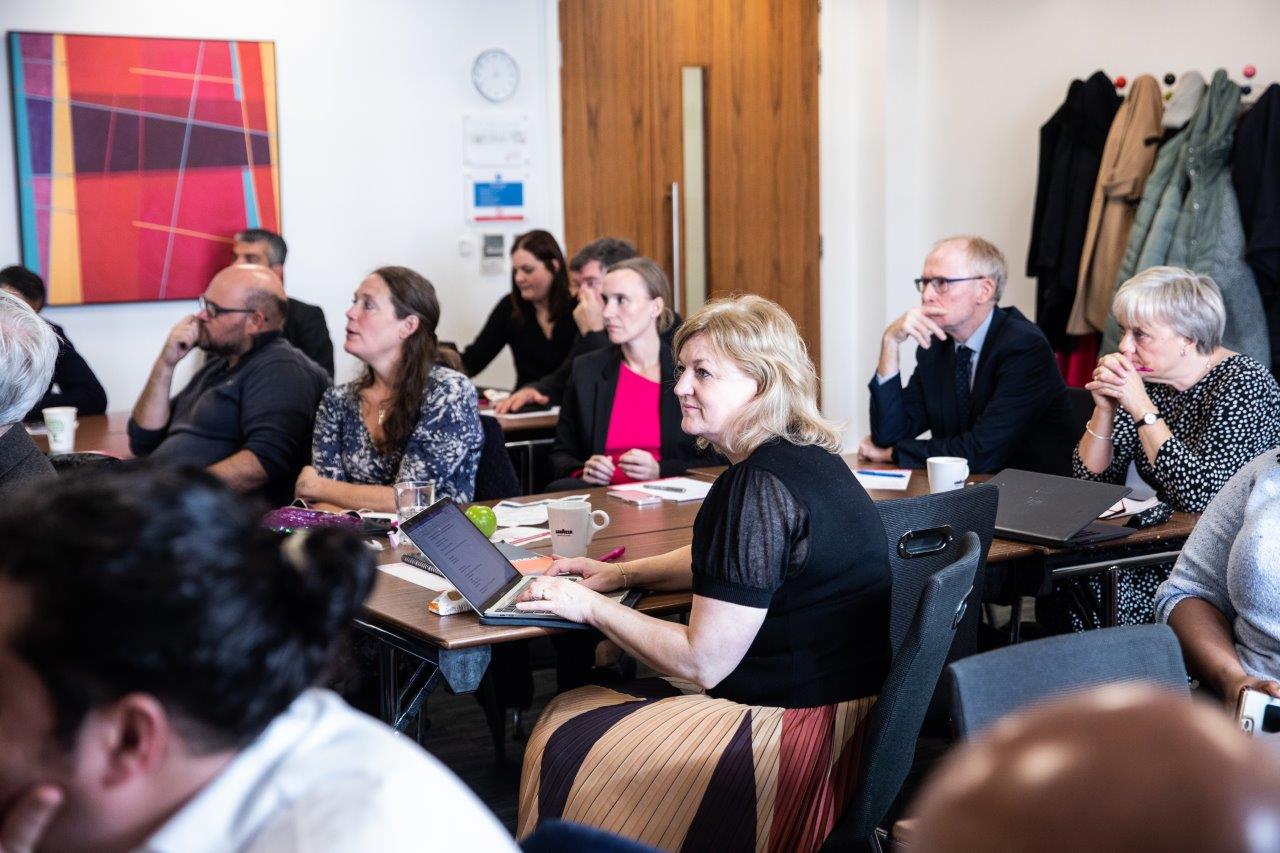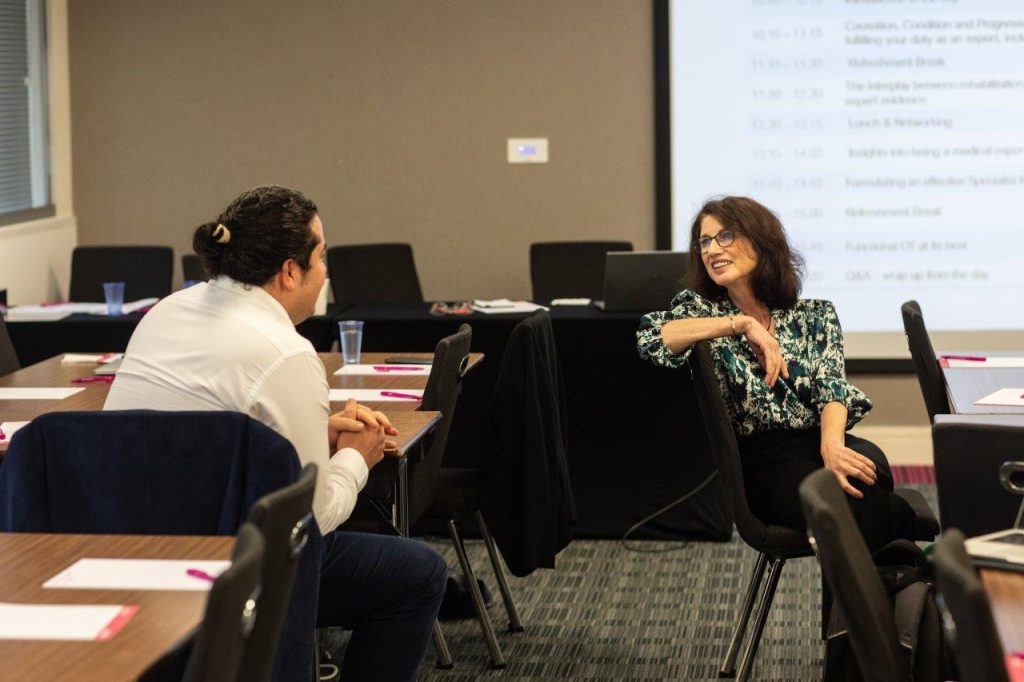Neurorehabilitation specialists from across the UK came together in London in November to learn from medico-legal experts and share their skills and knowledge as part of a medico-legal training day.
Hosted by NRC Medical Experts and chaired by founder Dr Edmund Bonikowski, the event brought together consultants in rehabilitation medicine, neuropsychologists, neuropsychiatrists, specialist neuro therapists and case managers to enjoy a day of continuous professional development, networking, and conversation.
Speakers included Huw Ponting, Partner at Enable Law, highly experienced medical expert Professor Mike Barnes and Helen Merfield, Chief Executive of Think Therapy First.
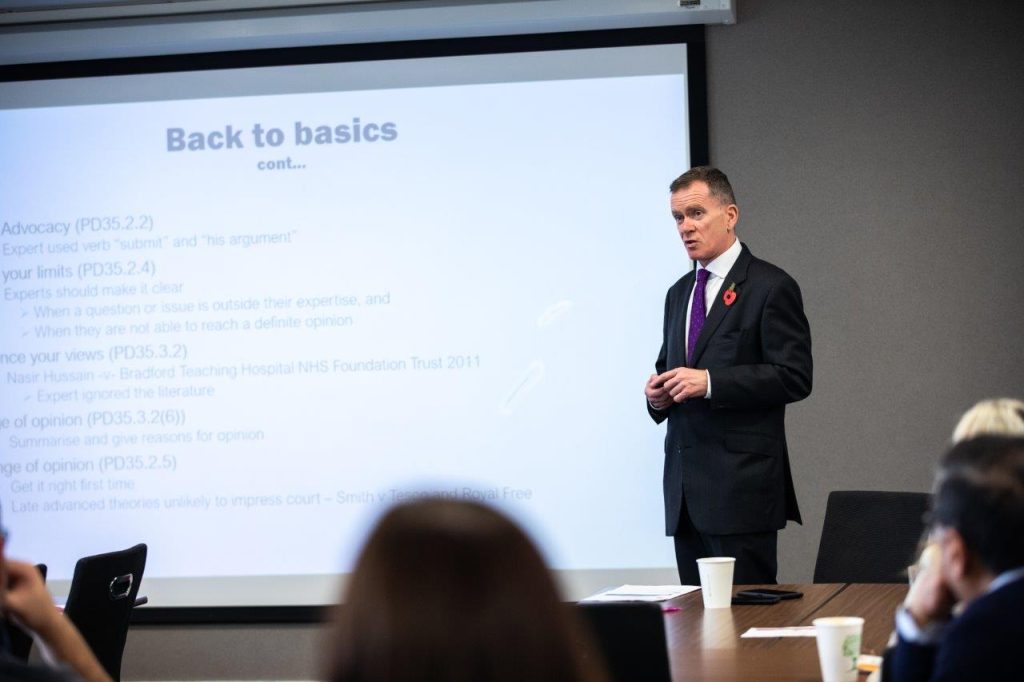
The interplay between rehabilitation and litigation
Huw Ponting of Enable Law kicked off the day with a fascinating insight into the interplay between rehabilitation and litigation during serious injury claims, which provided an insight into how the developments within an individual’s legal process impact their options for accessing timely and appropriate rehabilitation. Huw discussed the Rehabilitation Code versus Interim Payments, two very different options with impacts on liability and reasonableness.
Huw made the point that the legal community must focus on the need for rehabilitation whilst stressing that the rehabilitation experts are the ones who facilitate it in the right way for the individual. Huw also explained that litigation runs parallel to the rehabilitation process, and the Solicitor might decide that some ‘early’ expert evidence is required to identify and quantify continued rehabilitation needed, and to commence court proceedings as they work towards interim payments. This might include insight from neuropsychiatry, neurology and neuropsychology specialists.
‘If they could, every patient would give back every penny of their legal settlement if it meant not being injured’
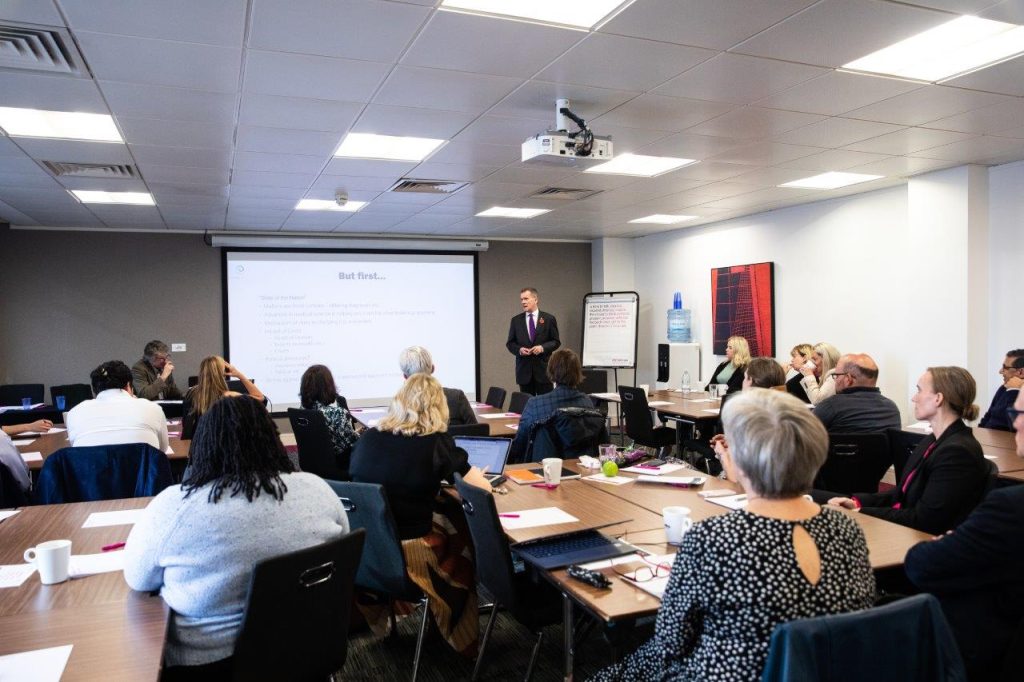
Later in the day, Huw explored the areas for consideration by medical experts in terms of Causation, Condition and Prognosis. Over his career, Huw has seen changes to trends of both injuries and causation, with an increase in diagnoses of functional neurological disorders one key area of note. He also noted that the mechanism of injury has changed over the years, with solicitors now seeing a significant rise in serious head injuries from e-scooter use and Covid/pandemic-related complications experienced by people with brain injuries. Further challenges are seen in the decrease in the number of experts available as experienced doctors retire, and the well-documented lengthy delays in the Court system.
Huw shared his insights for experts into joint reports and expert discussions, the rights and responsibilities of all the parties involved in such actions.
Presenting an exploration of the relationship a medico-legal expert has with instructing lawyers, Huw highlighted the importance of collaboration, flexibility, and a willingness to engage throughout the process. When it comes to working with clients, some of whom may be experiencing neurobehavioural difficulties due to their injury, Huw stressed the importance of good communication and thorough briefing.
Huw discussed the conversation around the prognosis of individuals with brain injury and neurodegenerative conditions. With life expectancy always a hot topic and inexact science, there is a general shift to periodic payment orders but in most cases, solicitors will still request a life expectancy report to decide which payment option is right on a case-by-case basis.
Huw also gave a high-level overview of mental capacity – something he describes as the most dynamically changing area of his legal practice. From capacity for litigation, property, health and welfare to contact with others, social media and sexual relationships, this area needs very detailed consideration and should never be considered an afterthought. Recommending an inquisitorial approach, he stressed that this requires significant examination by the medico-legal expert. Whereas the Medical Capacity Act gives the requirement for capacity at the time of the current consideration, experts when developing their report must give a prospective view on the capacity of this individual in the future.
Sharing 15 years of full-time medico-legal experience
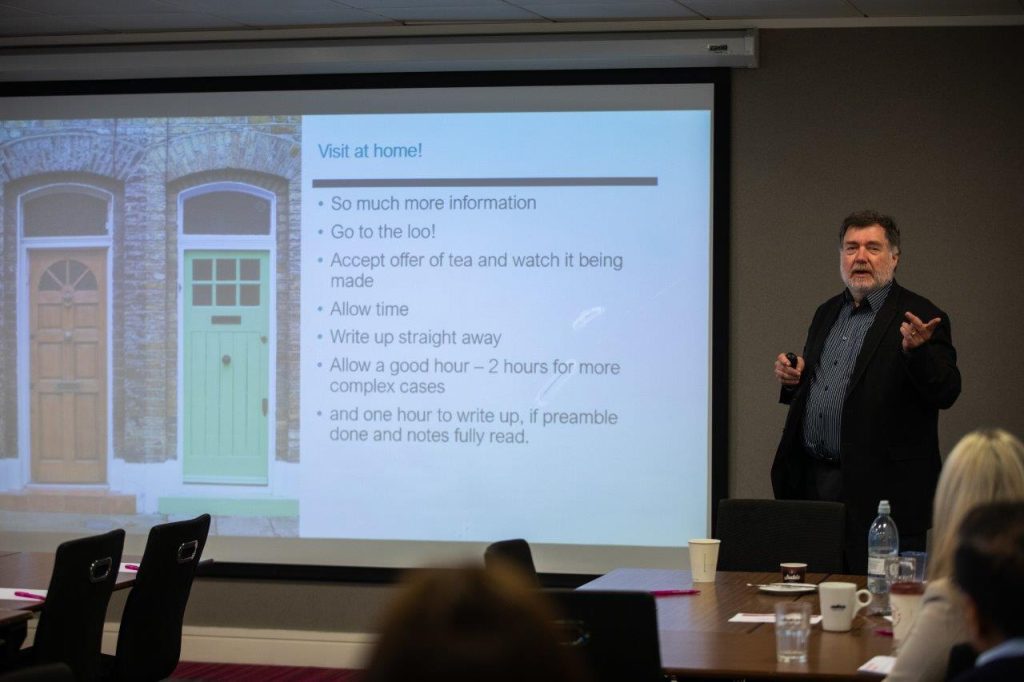
Professor Mike Barnes, neurologist and highly experienced neurological rehabilitation medico-legal expert shared his insights following a 25-year career as a full-time medical expert in a very well-received discussion. His expertise was honed over 3000 cases and 72 court appearances, largely focused on traumatic brain injury, with spinal injury, Cerebral Palsy and other neurological disabilities making up the rest.
Among his insights, Professor Barnes stressed the importance of visiting the client in their own home, good communication with and briefing from the instructing solicitor, and the crucial matter of writing reports as quickly as possible following the client visit to preserve crucial information for the courts.
Formulating an effective Specialist Rehabilitation Prescription
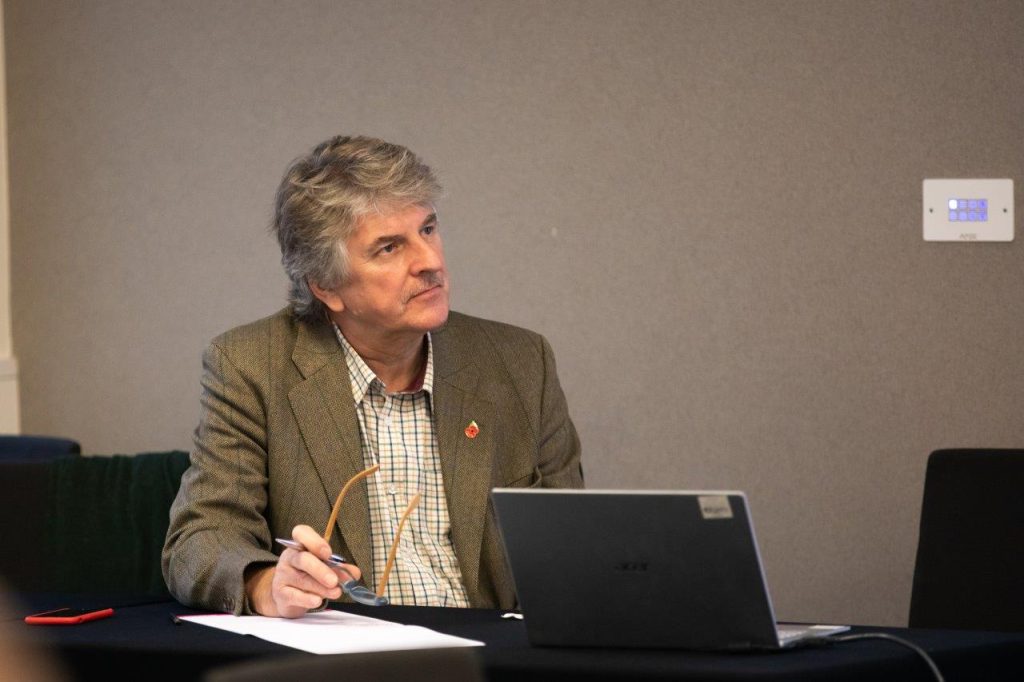
In the afternoon, Dr Bonikowski presented an overview of the Specialist Rehabilitation Prescription (SpRP) which provoked a lively discussion about its application and future, twelve years on from inception. Originally a recommendation from the NHS Clinical Advisory Group for Trauma, the Rehabilitation Prescription and SpRP give patients, and everyone involved in their care, a comprehensive overview of immediate and longer-term neuro-rehabilitation requirements.
With a range of different SpRP templates being used, attendees discussed the need for standardization of the document, and the potential it has to become a more ‘patient-friendly’ prescription, which can be more easily accessed and understood by clients.
One Welsh NHS Trust represented by NRC Expert Dr Jenny Thomas is piloting an updateable version of the SpRP via a live App, which makes its original intention of being a living document that follows the patient and changes over time in accordance with their changing needs much more probable.
Functional Occupational Therapy at its best
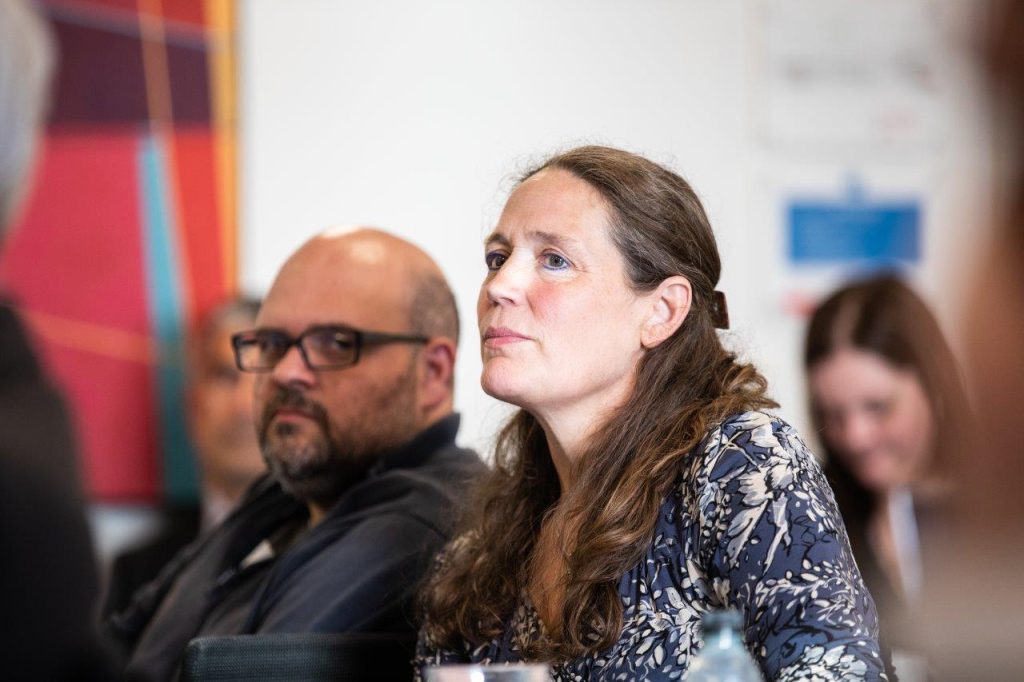
Think Therapy First’s Helen Merfield was the event’s final speaker, sharing her approach to client-led functional occupation therapy, a topic which prompted much engagement and discussion.
This approach sees the Functional Occupational Therapist using every aspect of a client’s life as therapy, fully engaging the clients with a specific goal relating to their existing passions, hobbies, or responsibilities. This graded approach uses meaningful activities and standardised assessments which develop key skills, seven days a week towards realistic but challenging goals.
Helen’s approach sees an increase in function of over 100% post-therapy, with 8-9 months as the usual timeframe for this work.
Supporting a crucial sub-sector of medico-legal experts
In his final thoughts, Dr Bonikowski noted that within the small sector of neurorehabilitation medicine, the medico-legal subsector is even smaller, with relatively few opportunities for CPD and peer support. It is this dedication to continued support – both in terms of continuous professional development and administration of instructions for Experts that sets NRC Medical Experts apart.
Clinicians working within neurorehabilitation, consultants in rehabilitation medicine, neuropsychologists, neuropsychiatrists, specialist neuro therapists and case managers are supported by NRC Medical Experts to develop their skills and experience in both Expert Witness and Clinical Practice.
Interested professionals are welcome to contact NRC Medical Experts to learn more about this opportunity. The annual training day will return in late 2023, again providing up to 5 hours of CPD for clinicians.
- Become an NRC Medical Expert >>
- Find a Medical Expert >>
- Request a pre-instruction conversation about your case >>

